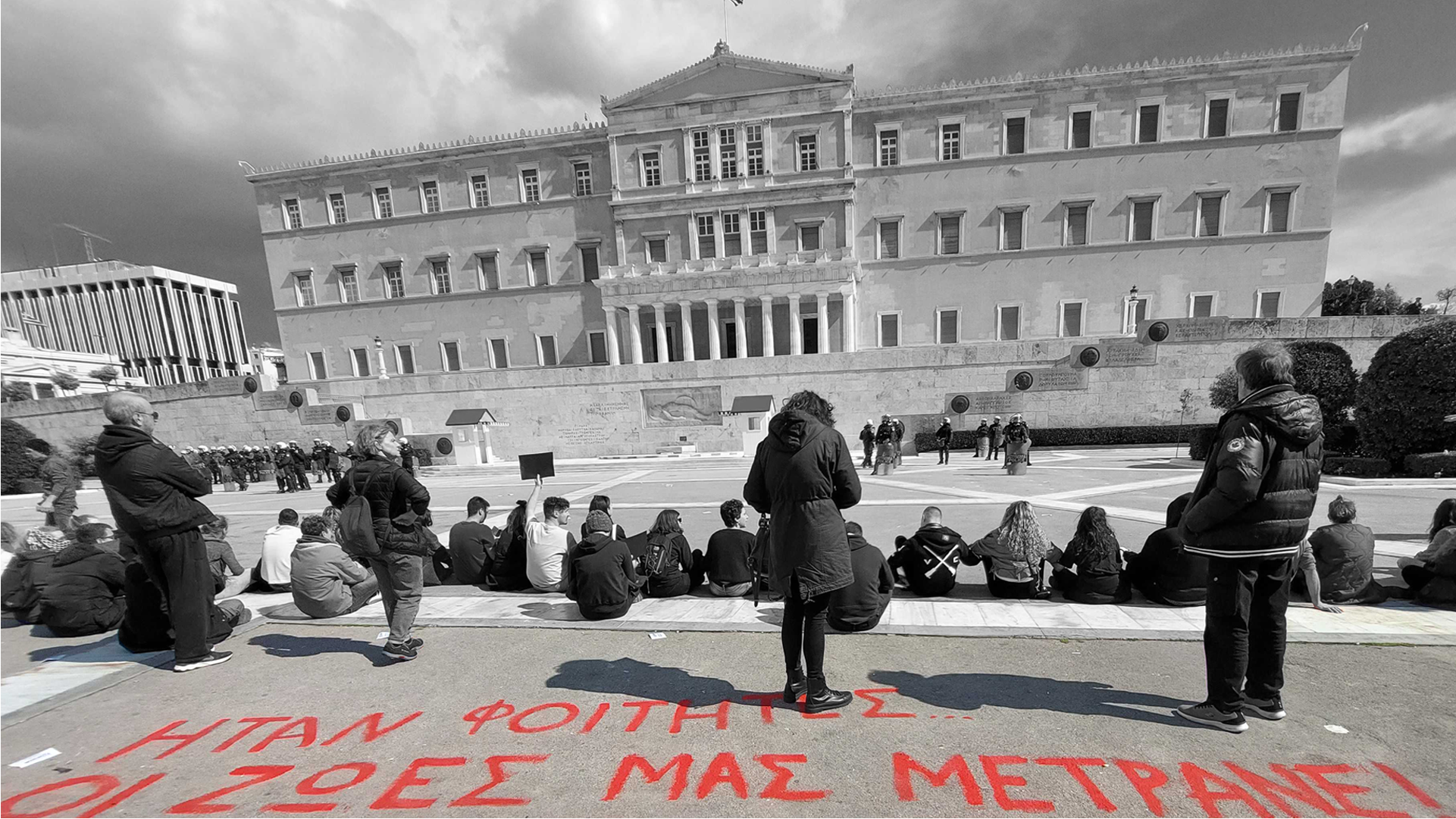
The mobilisation, young people, and political impact
The tragic accident in Tempi has left a mark on Greek society. Could the mobilisations that followed constitute a transformative moment for Greek society and consequently change the political scene? This is a question that is important in its own right, regardless of the political context, since social movements do not necessarily follow the political calendar. But given the fact that the elections are coming up soon, it becomes even more significant and it is well worth dwelling on it.
I will focus on three points that I think are crucial in order to answer this particular question.
First of all, we can observe the major return of “emotion” in the shaping of attitudes towards the political situation. The magnitude of the tragedy is on the one hand due to the number of victims, and their (young) age, but also to the fact that the vast majority of society can easily imagine themselves or people close to them in the place of the victims. At the same time, the obvious structural and criminal issues of the railways in Greece add to the people’s existing anger.
It has become rather common in recent analyses to downgrade “emotion” as a lesser motive and to discredit it as a source of “populist outbursts”. At the same time, it is placed in contrast to “rational” political management. But anyone who fails to recognise the importance of emotion as a key motive for social and political action and instead devalues it as a populist remnant is committing a huge error and is ignoring the ways in which social and political breakthroughs are produced. The period after 1974, after the end of the military dictatorship in Greece, offers several useful examples.
Secondly, the tragic accident in Tempi brought several political and ideological issues to the forefront of public debate. In a recent interview, Panteion professor S. Seferiadis described this condition as “cognitive liberation” and defined it as a process in which people change perceptual attitudes.
What does this practically mean?
Matters of the importance of public infrastructure came to the fore, alongside the importance of the state’s role in ensuring its quality. The public-private conflict returned to the spotlight after the pandemic, not just as a sterile ideological battle, but as an ideological confrontation that has a tangible impact on people’s lives. Has the time not come to regard the state as an active producer of public value for society, as is the case in many countries and advocated by eminent scientists internationally?
Moreover, the role of individual responsibility (that of the stationmaster) as opposed to the state’s structural responsibilities is yet another political issue that attracts attention and has ideological implications. Is it possible, in the context of technological development (faster transport), which increases the risk of accidents, that special technological provisions are not taken to avoid them?
Or even the public debate on the role of trade unions in the deliberations on safety and the quality of services provided, isn’t it as a whole set against the repeated ideological discrediting of trade unions often called “drones” and “lazy”?
Thirdly, the role that young people have in the mobilisations is crucial and raises questions regarding the political stakes. Eteron’s research on Gen Z confirms that there is an underlying situation resembling a pressure cooker, whose characteristic traits are different than past youth movements. The tragic accident in Tempi was the moment that the lid was taken off and the pressure was released. But young people have not been absent from mobilisations in the past. The artists’ battle and the reactions to police arbitrariness are only “snapshots” of these mobilisations of a generation that has experienced multiple crises, political frustrations and yet is regularly characterised as being “irresponsible”.
Can young people determine the election results?
At first glance, one could argue that quantitatively its role within the electorate is less important and this is actually true in terms of demographics. But this reading would overlook the dynamic role of young people and their multiplying effect on the attitudes and perceptions of their family circles.
Therefore, let us not take the negative answer to the crucial last question at face value. For politics is not the art of the possible but a struggle to broaden the concept of the possible through conflict, arguments and emotions.



